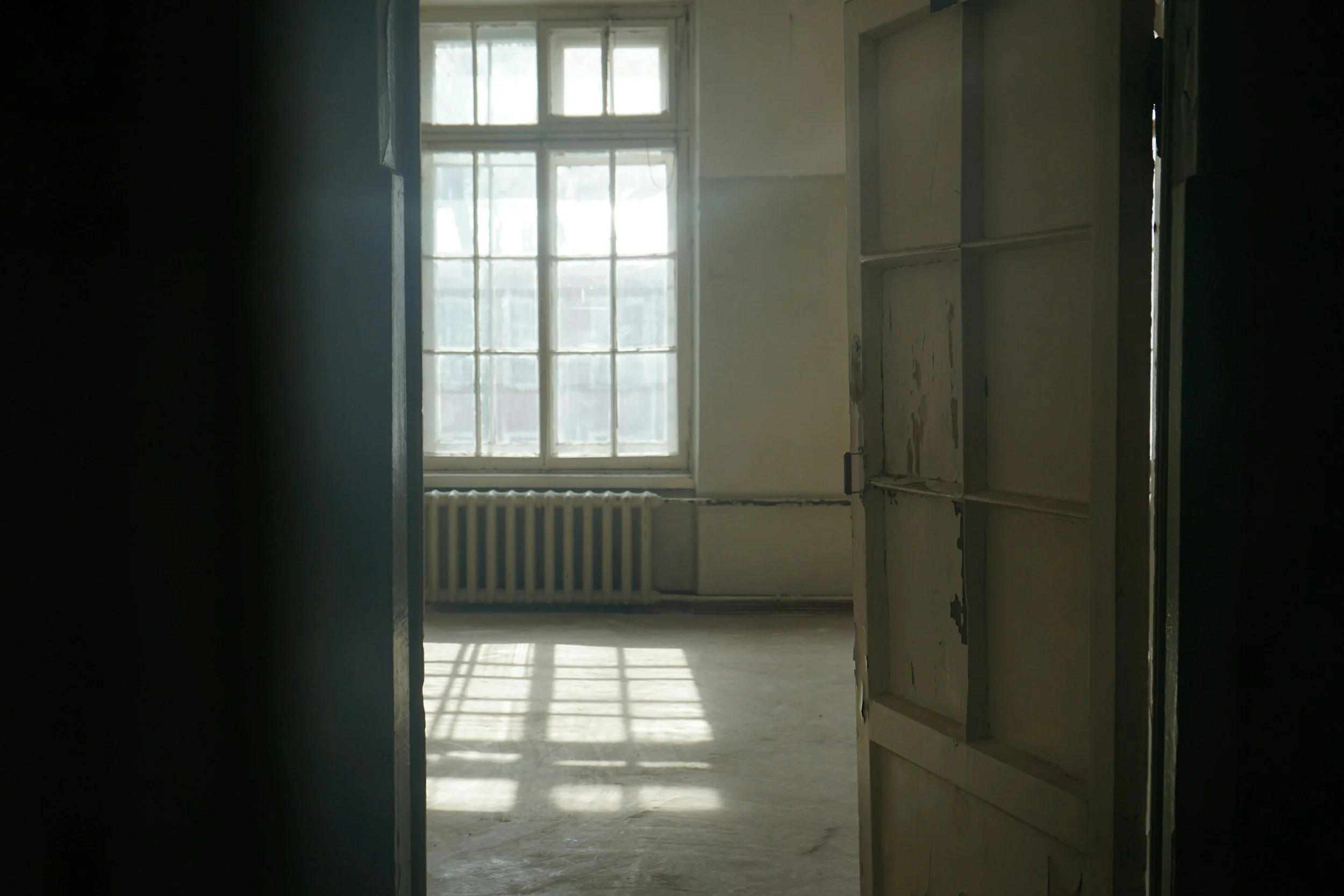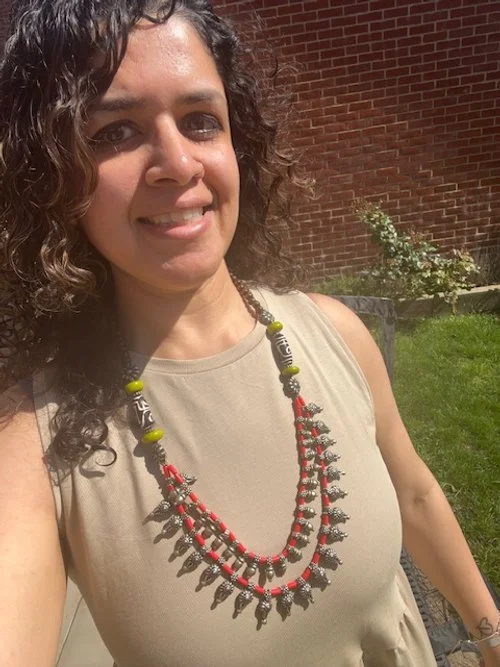I’m A Young Woman Of South Asian Origin and YES I have Parkinson’s Disease
It has taken me a while to get down to writing this. Revisiting what can be best described as a frustrating, confusing and scary journey is no easy task. However, I want to share my story because it is important to create awareness about Parkinson’s disease, which is one of the fastest growing neurological conditions today. It is important for the medical community to be aware of the very early symptoms of this degenerative condition, without being in denial or being bogged down by biases.
My first symptoms of Parkinson’s began in 2018, just under a year after the birth of my first child. I wasn’t able to move the fingers of my right hand very well. Initially it was hard for me to fully straighten them. It was my parents who first noticed that I wasn’t using my right hand effectively, relying instead on my left hand which they found odd because I am right-handed.
Upon their insistence I went and sought advice from my GP who brushed it off by saying that it could be because of muscle strain on my hand. He suggested that it was because I was supporting my son’s head when I was feeding him, therefore putting pressure on my right wrist. I was happy with this explanation at the time . After all, who really wants to spend hours at the doctors? Especially when you have a baby to look after and no support in a foreign country!.
The function of my hand however appeared to worsen overtime and I went back to the GP in 2019. I was then told that I needed to undergo physiotherapy as a problem with a nerve was suspected. This was diagnosed, or better to say misdiagnosed, as carpal tunnel syndrome and I was referred to a rheumatologist in 2019.
After 20 odd sessions of physiotherapy (without them making any real difference to the function of my right hand), the rheumatologist ran a variety of tests and confirmed that I didn't have any inflammatory conditions. He however felt it could be a case of carpal tunnel syndrome. I was then referred to more physiotherapy, which again did not help. It is important to remember that whilst all of this was happening, I was still looking after my toddler who was physically dependent on me. I remember I used to struggle with fastening his buggy belt, buttoning his clothes, strapping on his shoes. It was a very worrying phase.
Things progressed and in May 2019 my toes in my right foot started curling. This made it difficult for me to walk. I went back to the Rheumatologist and was told that this was down to me being pregnant with my second child, and that the toe-curling could be a result of the baby putting pressure on the sciatica nerve. I, again, was hopeful that they had finally got to the bottom of what this was. But the reality was this - nobody, and I mean nobody, at that time was connecting any dots. My symptoms were always viewed in silos.
It was at this point that I was referred to a hand surgeon, one of the best in the country. She too believed that it was carpal tunnel and referred me for surgery for both carpal and cubital tunnel release.
So, I eventually underwent surgery in March 2020, just before the world as we knew it changed massively due to Covid. The timing of this was extremely hard for me and my husband because we now had two children, both under the age of three - and the pandemic to deal with. This brought with it its own challenges because it delayed the whole process of diagnosis, and appointments that were not seen as ‘urgent’ were not given much importance.
All this meant I was looking after two very young children, with no support, dealing with lockdown, grocery shortages, nurseries being closed and on and on and on… All of this stacked up against me as I tried to recover from surgery and understand what was wrong with my body. In fact, when we talk about this time of our lives, my husband and I wonder how we survived it with our sanity preserved. My husband refers to it as the ‘dark days’ because it felt like we were navigating a long dark tunnel without any sign of light at the end of it.
The surgery was a red herring in hindsight because it did nothing to bring back the function in my hand. When I went for surgery review I was shown a few hand exercises and asked to leave because the pandemic was peaking and the hospital was going to be dedicated to Covid cases only. I look back at this now and see that if my hand surgeon had actually recognised the lack of change, things could have been very different.
The stresses of the pandemic and my life circumstances at the time triggered a couple of other symptoms, for example flashes in my right eye and a tremor in my right leg. Additionally, all of my symptoms persevered so I started seeing a neurophysio privately. Again, all my symptoms were attributed to postpartum causes. It was only when my tremor was triggered by a positive emotion of excitement that I knew deep down that something was drastically wrong and that I needed to see a neurologist. I remember even then that the GP wanted to refer me to an orthopaedic specialist. It was only upon my insistence that I was finally referred to a neurologist. In fact the letter states “upon persistent insistence by the patient, I am referring her to Neurology”. This was March 2021.
The day of my appointment with the neurologist finally arrived on the 6th of May 2021. He presented me with a diagnosis of Young Onset Parkinson’s (YOPD) on the day that he saw me. His exact words were “unfortunately it is not something that is as simple as a nerve or muscle pull - I’m afraid it's Parkinson’s disease, a degenerative, long-term chronic medical condition which is to do with a loss of dopamine in the brain”. I was shocked, of course, but I was also relieved because I finally knew what was happening to my body and I could, finally, now take steps to manage it.
I look back at this now and there are so many thoughts that cross my mind. Upon reflection, all the medical personnel involved in my care before I saw the neurologist appeared to be in denial - how could a young woman of South Asian origin have Parkinson’s? It surely must be a result of birth and postpartum strain. I can’t help but feel that everyone took the easy way out by attributing all my symptoms to pregnancy and childbirth. As Dr Sonia Mathur, a physician and advocate for Parkinson’s who was diagnosed with YOPD at the age of 28, says: “The problem with diagnosing women in this younger age (group) is the fact that not only are their symptoms nonspecific but also that physicians are not in the mindset that this happens in younger people. They’re still on the lookout for it in older people and particularly men”.
More than this though, I felt unheard and confused because nobody was really listening to me. I felt like I was pushed from department to department, with no communication between anyone. I was dealing with being a new Mum, the pandemic, and my illness, but it was up to me to be persistent, to listen to my body. I dread to think what would have happened if I had not acted like I did.
Perhaps it was not under their expertise, but what prevented them from referring me to a neurologist or to another specialist?. Why did my pregnancy cloud my diagnosis so thoroughly? I can’t help but ask, would the process have been any different if I were a man?
This journey has been nothing short of challenging; where there should have been reassurance and expertise, there was only strife and push-back. I believe that if I was diagnosed much quicker, if people really understood what was going on, if they had listened to me and analysed my symptoms as a whole - rather than being blinded by my pregnancy - it could have resulted in a better prognosis for me. Unfortunately I will never find out.
Written by Snehal Amembal
I am a freelance writer, editor and poet based in Surrey (UK). I currently freelance with Business Insider, Her View From Home and Motherly. My writing primarily reflects my motherhood journey, memories of my childhood and the essence of everyday moments which I record in my FB blog ‘ Notes On The Go’. I also review books authored by writers of South Asian heritage on my blog Desi Lekh.
I have authored three chapbooks, ‘Pause’, ‘I Am’ and ‘In Between Love' . My work has appeared in anthologies as well as in literary zines. I worked as an Editor with Daily Life Magazine for 1.5 y (2020 - 2021). You can take a look at my work here https://linktr.ee/mommy.snippets
Finally, I am a Young Onset Parkinson’s Disease (YOPD) warrior and create awareness about the condition through my writing. You can find me on Instagram: @mommy.snippets




